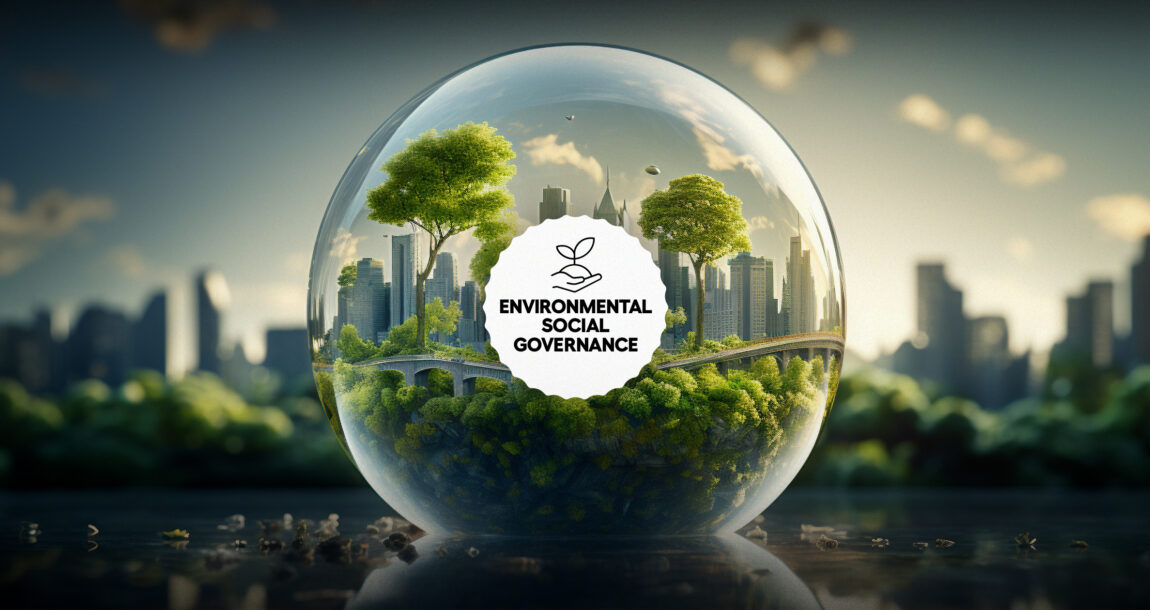ESG is getting the insurance industry’s attention, panelists say

Environmental, social and governance investing is part of risk management, and it’s part of business strategy. As such, ESG is an issue that the insurance industry is noticing.
That was the word from a KPMG panel who discussed ESG and insurance during a recent KPMG Insurance Industry Conference.
“Although the majority of insurance companies have done a good job of talking about the social part of ESG, it’s really the environmental part – climate – that’s starting to take center stage,” said Sean Vincente, advisory partner with KPMG US.
The Securities and Exchange Commission also is looking at ESG investing, proposing two rule changes in 2022 that would prevent misleading or deceptive claims by U.S. funds on their ESG qualifications and increase disclosure requirements for those funds.
The SEC has received more than 15,000 comment letters on these proposed rules, more comments than received for any previous SEC proposed rules, said Anita Chan, partner in KPMG’s Department of Professional Practice.
In addition, Chan said, the California state Senate recently passed two bills that would require any U.S. companies that do business in California and have a total revenue greater than $1 billion to file a report on their greenhouse gas emissions to a climate registry. Both bills are awaiting Gov. Gavin Newsom’s signature.
The “G” in ESG “is more like table stakes – you have to do it,” said Nima Patel Edwards, advisory director with KPMG US. “The ‘S’ is what a lot of businesses are already doing. They are doing diversity, equity and inclusion initiatives, focusing on community impact. But the ‘E’ is where the greatest value can come from – limiting carbon emissions from your own operations and your own supply chain.”
How are ESG considerations impacting insurers?
The biggest impact ESG has on life insurers, “is how climate will impact the health and safety of people and what it means to society and the community in terms of everything from unemployment rates to mental health issues,” said Venki Kumar, advisory director with KPMG US.
From a property/casualty insurance standpoint, “insurers need to know how big of an impact they will have when a climate event happens,” Kumar said.
P/C insurance leaders must ask themselves what strategies their companies can put in place to improve their reactive time to a climate event such as a hailstorm or a hurricane, he said.
“You can never be 100% proactive. You must be reactive because you don’t know how much damage a hurricane or other event will create. But you must know how you will react when one does occur.”
Susan Rupe is managing editor for InsuranceNewsNet. She formerly served as communications director for an insurance agents' association and was an award-winning newspaper reporter and editor. Contact her at [email protected]. Follow her on Twitter @INNsusan.
© Entire contents copyright 2023 by InsuranceNewsNet.com Inc. All rights reserved. No part of this article may be reprinted without the expressed written consent from InsuranceNewsNet.com.
Susan Rupe is managing editor for InsuranceNewsNet. She formerly served as communications director for an insurance agents' association and was an award-winning newspaper reporter and editor. Contact her at [email protected].






500K have Medicaid coverage restored after computer problem fixed
North Dakota judge halts long-term care bailout plan crafted in Pa.
Advisor News
- Why aligning wealth and protection strategies will define 2026 planning
- Finseca and IAQFP announce merger
- More than half of recent retirees regret how they saved
- Tech group seeks additional context addressing AI risks in CSF 2.0 draft profile connecting frameworks
- How to discuss higher deductibles without losing client trust
More Advisor NewsAnnuity News
- Allianz Life Launches Fixed Index Annuity Content on Interactive Tool
- Great-West Life & Annuity Insurance Company Trademark Application for “SMART WEIGHTING” Filed: Great-West Life & Annuity Insurance Company
- Somerset Re Appoints New Chief Financial Officer and Chief Legal Officer as Firm Builds on Record-Setting Year
- Indexing the industry for IULs and annuities
- United Heritage Life Insurance Company goes live on Equisoft’s cloud-based policy administration system
More Annuity NewsHealth/Employee Benefits News
- Findings from University of Nevada Yields New Data on Opioids (Aca Dependent Coverage Extension and Young Adults’ Substance-associated Ed Visits): Opioids
- Recent Studies from University of Tennessee Add New Data to COVID-19 (Uncovering Gaps in Childhood Vaccine Coverage: A Post-COVID-19 Analysis of Vaccine Disparities in Tennessee): Coronavirus – COVID-19
- AM Best Affirms Credit Ratings of Prudential Financial, Inc. and Its Life/Health Subsidiaries
- TrumpRx is here. What you should know
- Report: Health insurers denied one in five claims in 2024
More Health/Employee Benefits NewsLife Insurance News